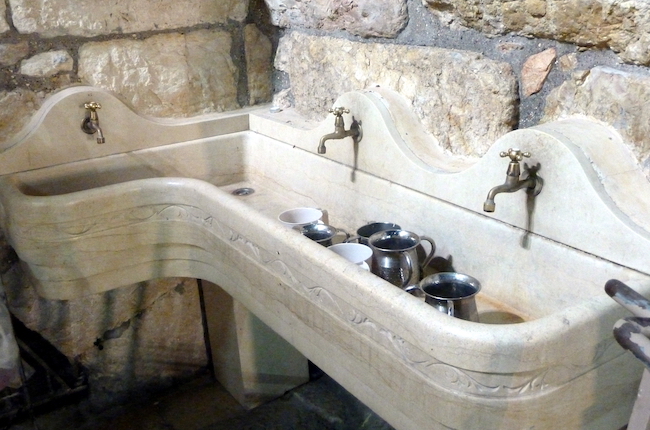
The Story
The two friends walked together to shul one morning in Tel Aviv, deep in discussion.
“Trust me,” Tal said, “Being a bechor is way harder. I have all those little siblings that need my help and that mess up my stuff! You’re the youngest in your family – everyone spoils you !”
“No way,” Erez answered with a smile, “Being oldest must be so great! No hand-me-downs, no one treats you like a little kid…You’re lucky, you just don’t realize it!”
They reached shul in time for tefillah. After the kedushah Erez walked over to the washing station to prepare for the Birchat Kohanim. He may sometimes be frustrated to be the youngest child, but he was always very proud to be a Kohen. But something was not right. There was no Levi there to wash his hands!
Discussion
Q: What should a Kohen do if there is no Levi to wash his hands before Birkat Kohanim?
A: He should check to see if there is a bechor present in shul. The bechors were originally supposed to serve Hashem in the Mishkan and Beis Hamikdash. Unfortunately, they lost this privilege in the story of Chet Haegel. Their responsibility was transferred to shevet Levi. Despite this, the bechor still has a special halachic status. The Ohr Hachaim, for example, writes that in the future the bechors will serve in the in the Mikdash (Ohr Hachaim, Bereishit 49:28).
If there are no Leviim available to wash the Kohen’s hands for Birkat Kohanim, then the a bechor should do the job. (1) (Kitzur Shulchan Aruch 100:5).
Q: What should a Kohen do if there are no Levi’im and no bechors in the shul?
A: He should wash his hands by himself (Kitzur Shulchan Aruch 100:5).
Q: What is the connection between our story and the parasha?
A: The topic of the bechor is very important in parashat Toldot. According to the Midrash, at the time that Yaacov and Eisav lived, korbanot were performed by the bechor. Yaacov knew that it was wrong for such a kadosh task to be done by a rashah. He therefore made every effort to obtain the right of the bechora.
(1) The bechor must be a peter rechem. This excludes Caesarian first borns (Kitzur Shulchan Aruch 100:5).
Back to Our Story:
The Rav quickly explained the halacha to Erez. “Now Erez, we just need to find out if there is a bechor in shul this morning”.
“I’ve got just the man,” said Erez with a grin.
After Shacharit was finished, the boys headed home.
“Now what were we talking about on the way here?” Erez playfully asked.
Tal smiled. “Oh, I was just telling you how lucky I am to be a bechor.”
“Looks like you were right” laughed Erez.


